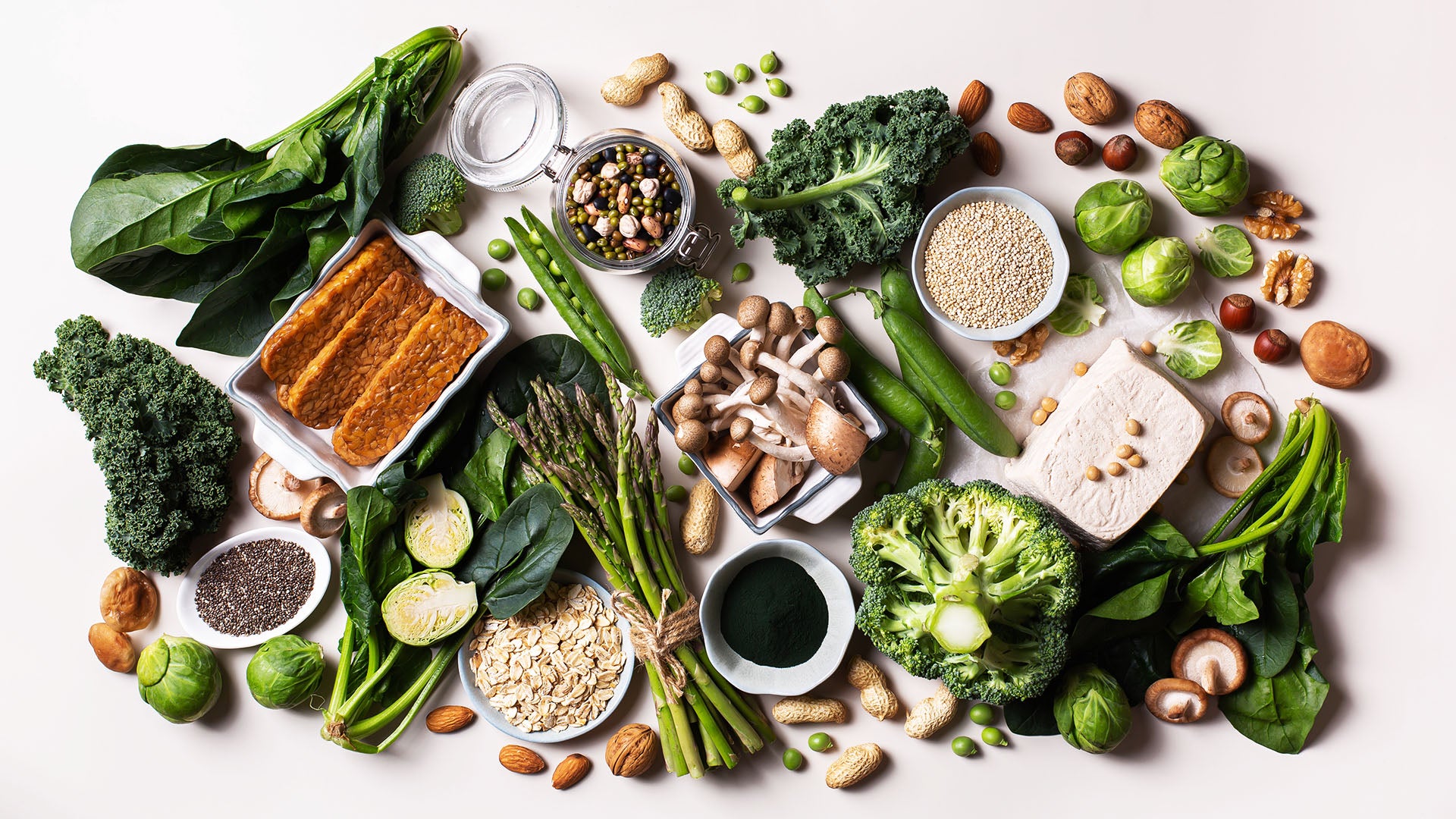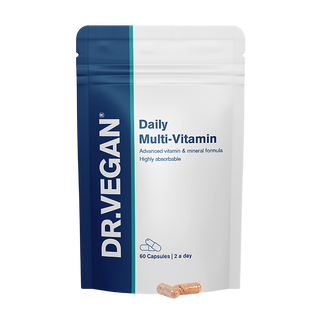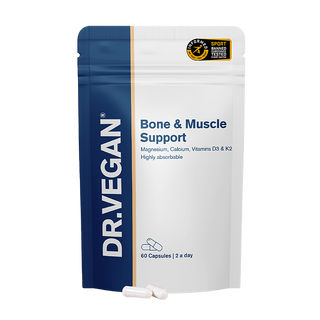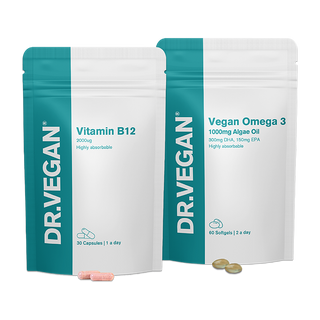Debunking the biggest food myths

Myths surrounding food and nutrition profoundly influence our dietary choices and habits. Many myths can impact our overall health and wellbeing, from misconceptions about specific food groups to beliefs in certain nutritional practices. Expert nutritionist Shona Wilkinson debunks some of the most persistent food myths to foster a clearer understanding of how to approach our diets more effectively.
'A healthy diet should require supplements'
Myth debunked: While supplements can be beneficial for individuals, they are not a substitute for a healthy and balanced diet. Relying solely on supplements neglects the synergistic effects of nutrients that whole foods offer. Emphasising a diverse diet that includes a variety of fruits, vegetables, whole grains, lean proteins and healthy fats can provide essential nutrients needed for overall wellbeing. Adding in supplements, like a Daily Multi-Vitamin, increases your overall nutrient intake and may fill the gaps where some nutrients may not be consumed in high enough proportions. Another myth is that if your supplements have 100% NRV (nutrient reference value), it must be a good supplement. In many cases, this couldn't be further from reality - learn more about the 3 big myths about supplements.
Want to improve your diet? Create your free Diet Profile in 3 mins.
Did you know supplements can have unnecessary nasty additives and animal ingredients in them? We've compiled a few guides to to help you be more informed: 'Check your labels for these ingredients', 'Animal ingredients in supplements - what you need to know' and '7 ingredients in supplements to avoid'.
'Breakfast is the most important meal of the day'
Myth debunked: The idea that breakfast is the most crucial meal has been widely shared. However, recent studies have challenged this notion, suggesting that the significance of breakfast varies from person to person. While some individuals may benefit from having a balanced breakfast, others may find that intermittent fasting or delaying their first meal yields no adverse effects. It is essential to listen to your body's hunger cues and adopt an eating pattern that suits your lifestyle and preferences.
If you're looking to change things up, try some of our free, healthy nutritious breakfast recipes.
'Carbs are bad and should be avoided'
Myth debunked: Carbohydrates often bear the brunt of the blame for weight gain and various health issues. However, not all carbohydrates are created equal. Whole grains, fruits, vegetables and legumes provide essential nutrients, dietary fibre and energy. Cutting out all carbohydrates can lead to a lack of necessary nutrients and can be unsustainable in the long run. It's essential to focus on consuming complex carbohydrates and maintaining a balanced diet rather than eliminating an entire food group. Discover the 'The 5 best carbs for plant-based meals' recommended by our expert nutritionists.
Daily Multi-Vitamin

'Meat is needed to have a balanced diet'
Myth debunked: While meat can be a valuable source of protein and essential nutrients, a well-planned and diverse plant-based diet can also meet all the necessary dietary requirements. By incorporating a variety of legumes, whole grains, nuts, seeds and vegetables, individuals can obtain ample protein, vitamins and minerals without relying on animal products. It is crucial to ensure a balanced intake of nutrients from a diverse range of plant-based sources.
Increasing food knowledge can help create a more informed and balanced approach to nutrition. Our expert nutritionist, Shona, dispels common misconceptions about plant-based diets. Embracing a diverse diet that incorporates a variety of whole foods, including grains, proteins, fruits and vegetables, can contribute to overall health and wellbeing.
Learn more about 'Mistakes to avoid on a plant-based diet', important vitamins for vegans and best supplements to take on a vegan diet.
'Quitting dairy will lead to a calcium deficiency'
Myth debunked: Contrary to popular belief, calcium isn't exclusive to dairy products. Various plant-based sources, including tofu, fortified plant milks, leafy greens and nuts, can provide ample amounts of Calcium. Additionally, incorporating other bone-strengthening nutrients like Vitamin D, Magnesium and Vitamin K into your diet can further support bone health, even in the absence of dairy consumption. Our advanced daily multi-nutrient, Bone & Muscle Support, contains optimal levels of Calcium, Magnesium, Vitamin K2 and Vitamin D3 in their most absorbable and effective form. Not sure if you're getting enough calcium from your diet? Create your free Diet Profile and find out for free in 3 minutes.
You may be interested in reading 'Is oat milk good for diabetes?'.
Bone & Muscle Support

'To build muscle, all you need is protein'
Myth debunked: While protein is crucial for muscle repair and growth, only focusing on protein intake without consideration of other essential nutrients can be counterproductive. A balanced diet that includes carbohydrates, healthy fats, vitamins and minerals is vital for overall muscle development and sustained energy during workouts. Maintaining a well-rounded diet, coupled with regular resistance training, is key to building and maintaining muscle mass. Continue reading about plant-based protein.
You may also be interested in reading 'Why is bone health so important in menopause?'.
'You can't get enough protein from plant-based diets'
Myth debunked: Plant-based protein sources can provide all the essential amino acids necessary for overall health and muscle function. Legumes, tofu, tempeh, quinoa, nuts and seeds are excellent sources of plant-based protein. By incorporating a variety of these protein-rich foods into your diet, you can easily meet your daily protein needs without relying on animal products.
Give some of our protein-packed recipes a try: 'Pistachio Protein Popsicles' (Ve), 'Protein Breakfast Porridge' (Ve) and 'Protein Parfait' (Ve).
'All fat is bad'
Myth debunked: The blanket statement that all fat is harmful oversimplifies the role of fats in our diet. While saturated and trans fats can be detrimental to health when consumed in excess, unsaturated fats, including those found in avocados, nuts and olive oil, are beneficial for heart health and overall wellbeing. It is crucial to distinguish between healthy and unhealthy fat sources and incorporate moderate amounts of beneficial fats into your diet. Continue reading about healthy and unhealthy fats.
Vegan Essentials Bundle

'Multigrain and whole grain are the same thing'
Myth debunked: The misconception that multigrain and whole grain are interchangeable can lead to poor dietary choices. While multigrain products contain multiple grains, they may not necessarily include the entire grain kernel. On the other hand, whole grain products use the entire grain kernel, providing more fibre, vitamins and minerals. When shopping, prioritise whole grain products to reap the full benefits of their nutritional content.
'Snacking is bad for you'
Myth debunked: Snacking itself is not inherently detrimental to health. The key lies in choosing nutrient-dense snacks that provide energy and essential nutrients between meals. Incorporating snacks including fruits, vegetables, nuts and yoghurt can help maintain energy levels and prevent overeating during main meals. Mindful snacking can contribute to a well-balanced diet and support overall health goals. Finding a snack that is healthy, vegan and satisfying, can sometimes be a challenge. So we've compiled a list of our top 5 favourite snacks that will never disappoint.
You may enjoy reading 'How to beat chronic fatigue'.
Discover our range of vegan supplements and probiotics.
You may also enjoy reading:
- Is sugar actually that bad for you?
- Ultra-processed foods: dangers & how to avoid them
- Why the hype about Apple Cider Vinegar?
- Does sperm impact the risk of diabetes?
- Exposed: Plant-sweeteners and type 2 diabetes
Want to hear more from our nutritionists? Sign up to our email newsletter for insights and exclusive offers:


















